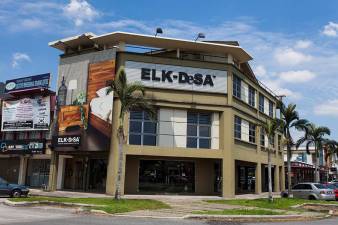KUALA LUMPUR: ELK-Desa Resources Bhd, a non-bank lender focused on the used-car segment, saw its revenue increase by 7% to RM49.25 million for the first quarter (Q1) ended June 30, 2025 (FY25), compared to RM45.88 million in the same period last year, driven by higher contributions from both its hire purchase and furniture segments.
Profit before tax declined by 22% to RM8.58 million from RM10.99 million in the corresponding quarter last year, mainly due to higher impairment allowances and finance costs.
The group’s hire purchase receivables as of June 30, 2025, stood at RM721.07 million, representing an 8% increase from RM668.34 million a year ago, in line with its strategy to expand its hire purchase portfolio moderately.
To support this growth, bank borrowings increased by 26%.
Despite this, the group’s gearing remained at a manageable level of 0.78 times compared to 0.63 times a year ago.
For the hire purchase segment, revenue for the quarter rose 7% to RM32.87 million, supported by portfolio growth.
Impairment allowances increased by 35% to RM13.08 million while the credit loss charge rose from 1.43% to 1.77%, mainly due to slower hirer repayment and higher losses from sales of repossessed vehicles.
Accordingly, the net impaired loans ratio increased to 0.85% as at June 30, 2025, from 0.60% as at March 31, 2025.
Profit before tax for the segment fell 18% to RM8.20 million.
The furniture segment reported an 8% increase in revenue to RM16.38 million, primarily driven by stronger domestic sales.
Gross profit margin, after deducting shipping and transportation costs, declined from 31% to 27% due to higher shipping costs to East Malaysia and increased operating expenses in line with the sales volume.
Consequently, profit before tax for the segment declined to RM0.38 million from RM0.97 million a year ago.
Executive director and chief financial officer Teoh Seng Hee said in FY26, the group remains committed to a moderate expansion of its hire purchase portfolio, while keeping a close eye on factors that may influence repayment behaviour and asset recovery.
“Among these factors are the potential increase in living costs resulting from subsidy rationalisation and the wider implementation of the sales and service tax (SST).
“In addition, shifting consumer demand patterns driven by the entry of Chinese car manufacturers could also impact the residual values of used cars,” he said.
“In response, we will continue to strengthen our recovery efforts by staying closely engaged with our customers and upholding our structured recovery procedures,” Teoh concluded.
Despite the macroeconomic headwinds, the group remains confident in its resilience and long-term value creation, with no immediate plans to raise capital from the markets, given its solid balance sheet position.
